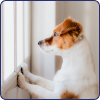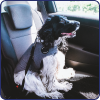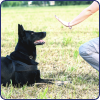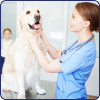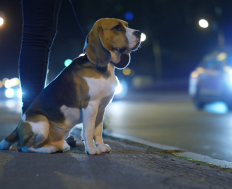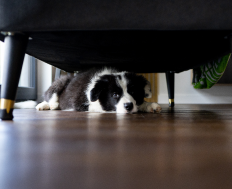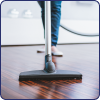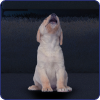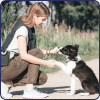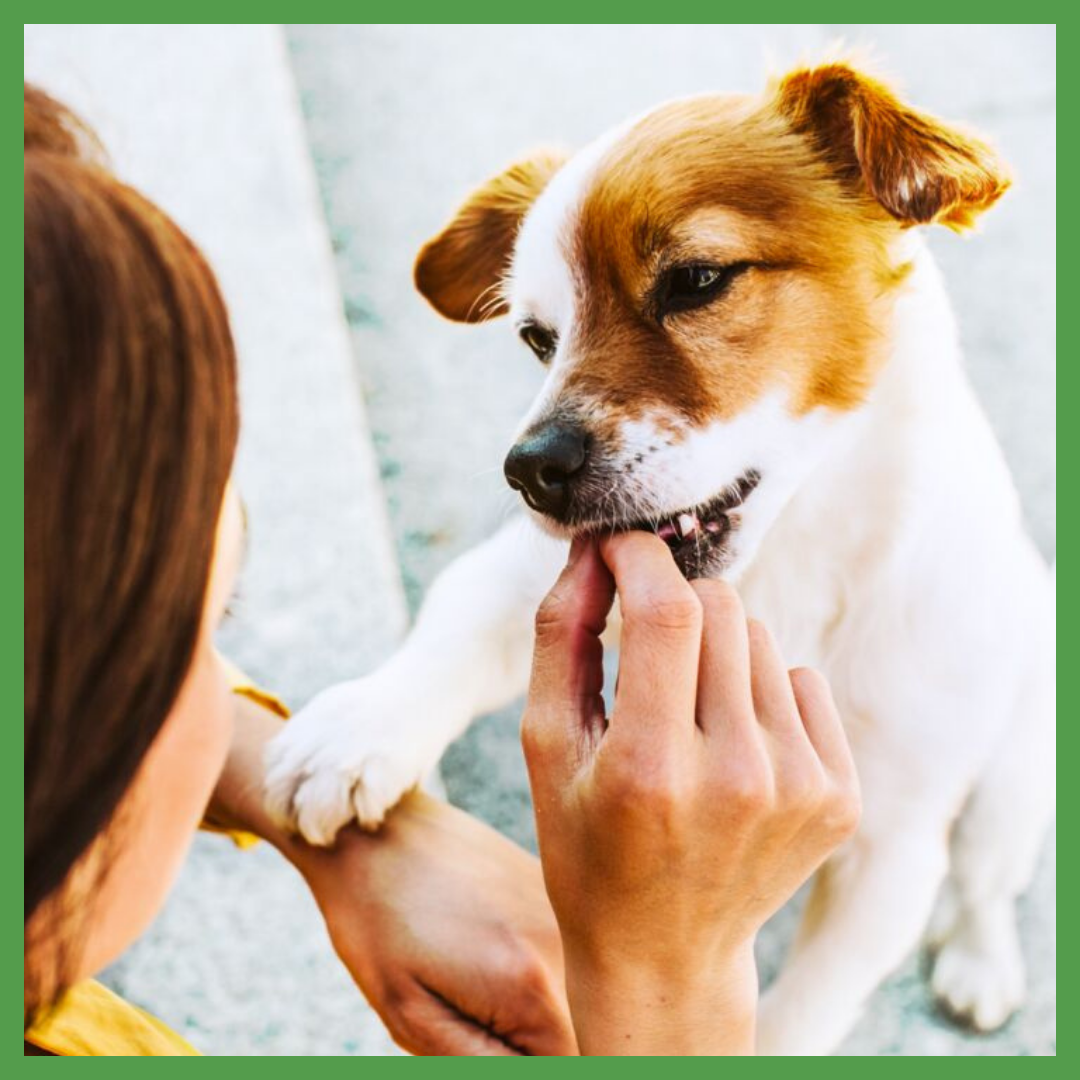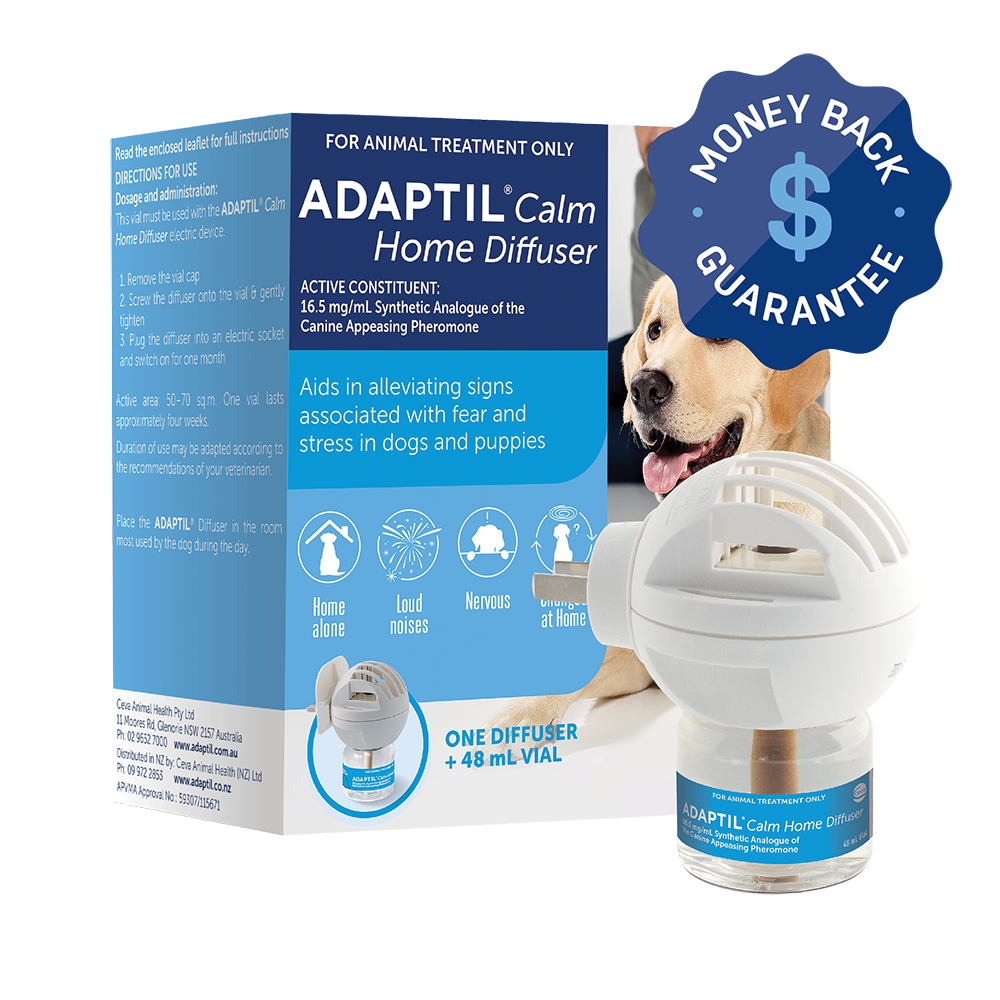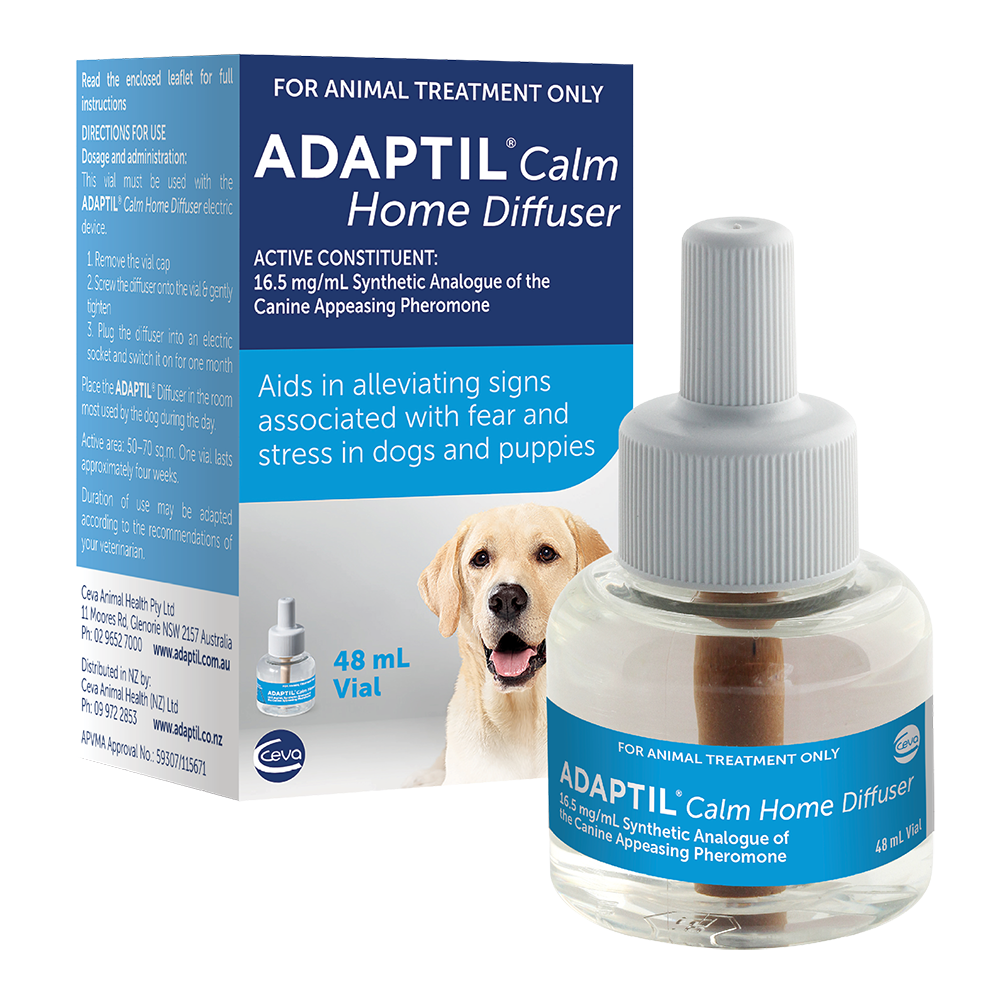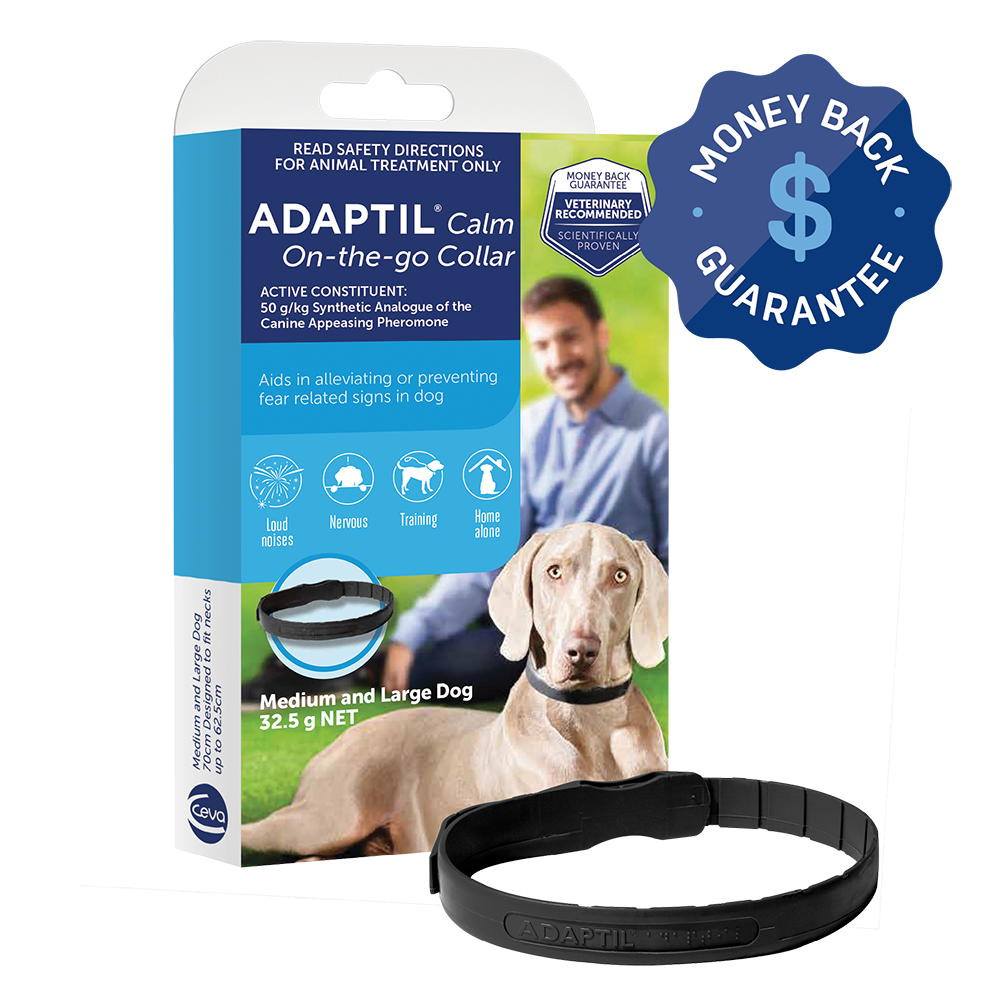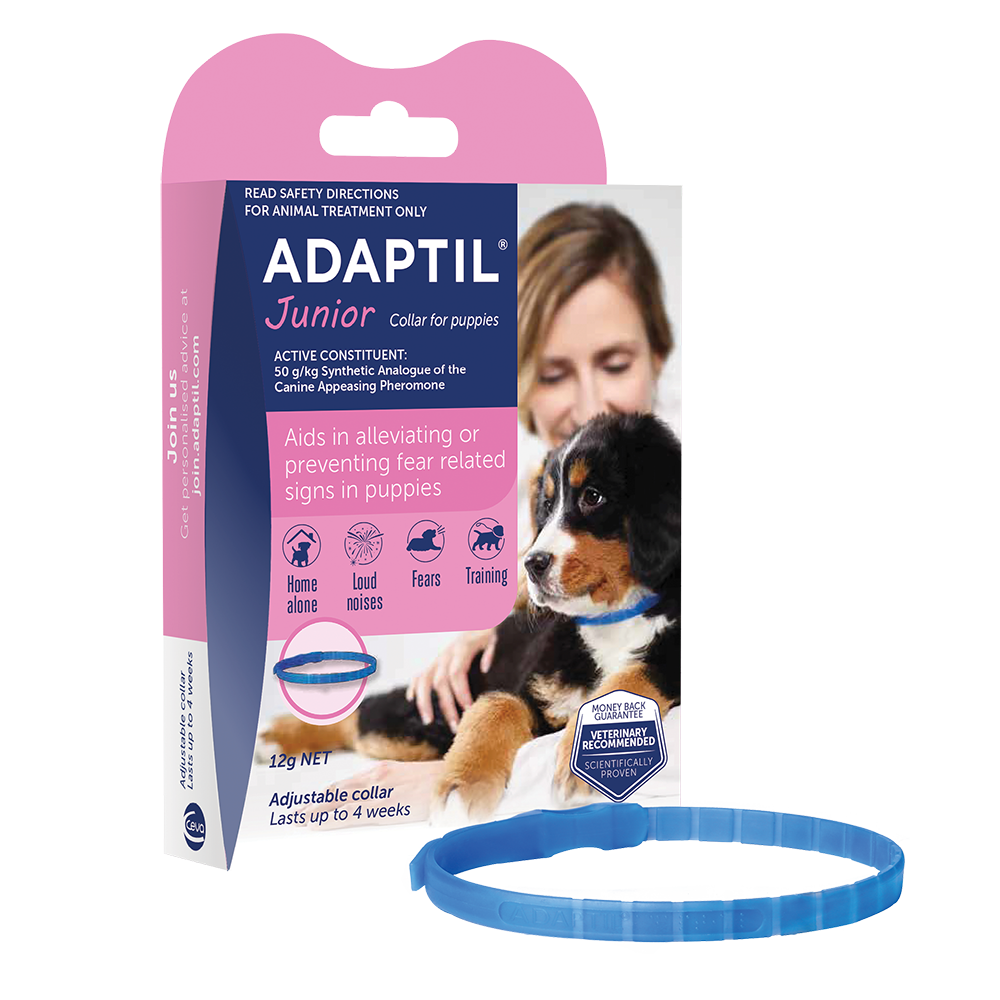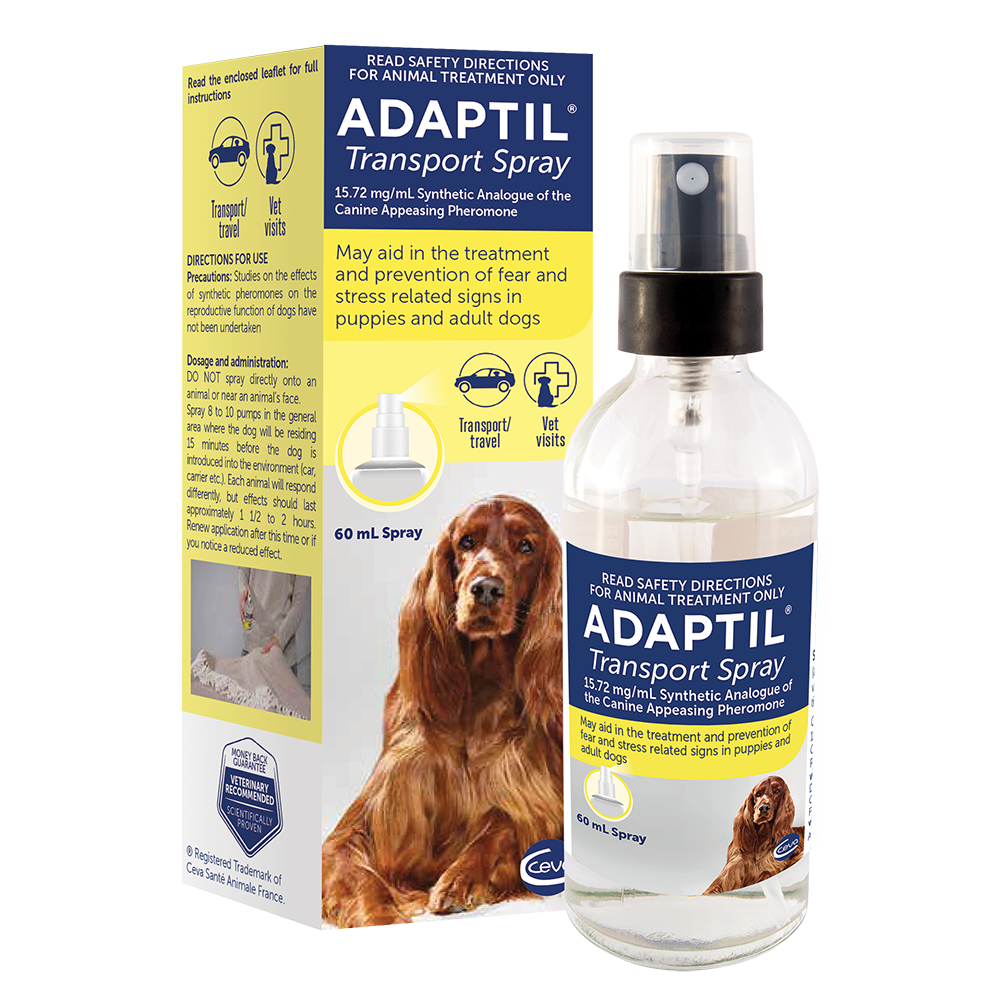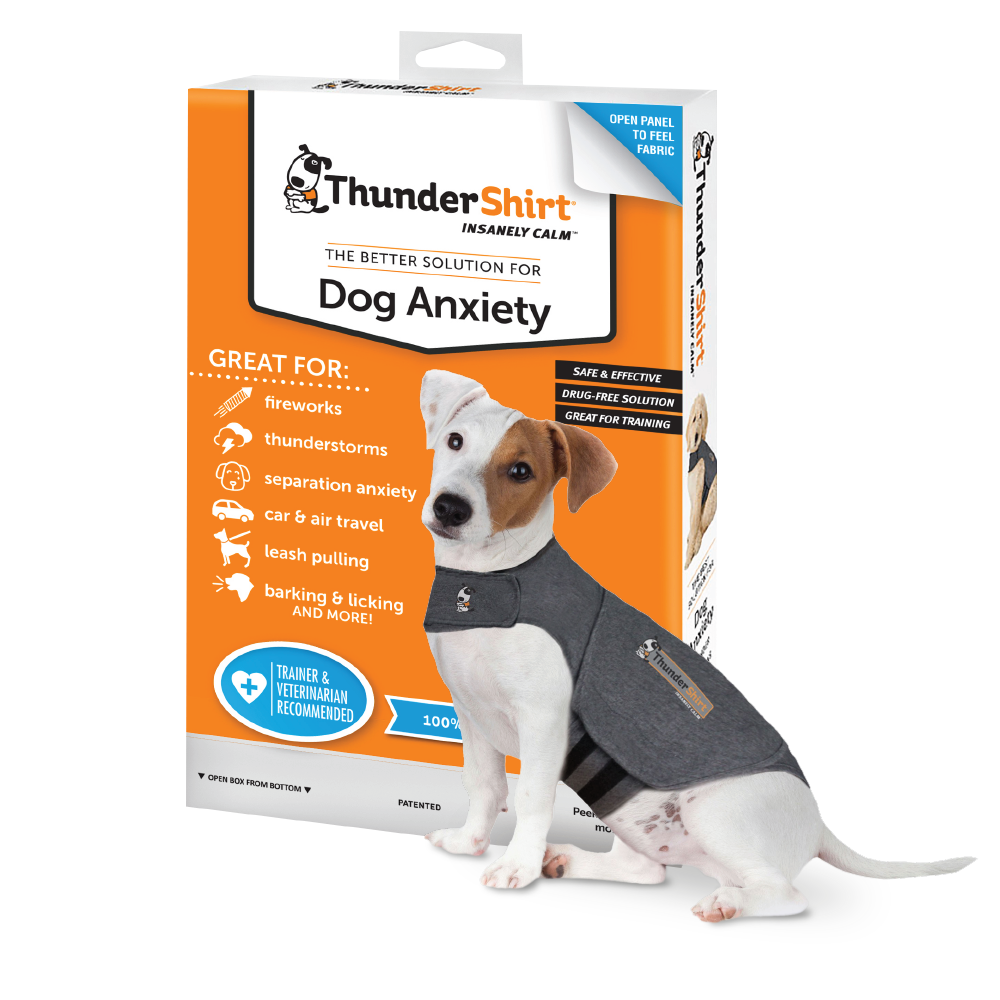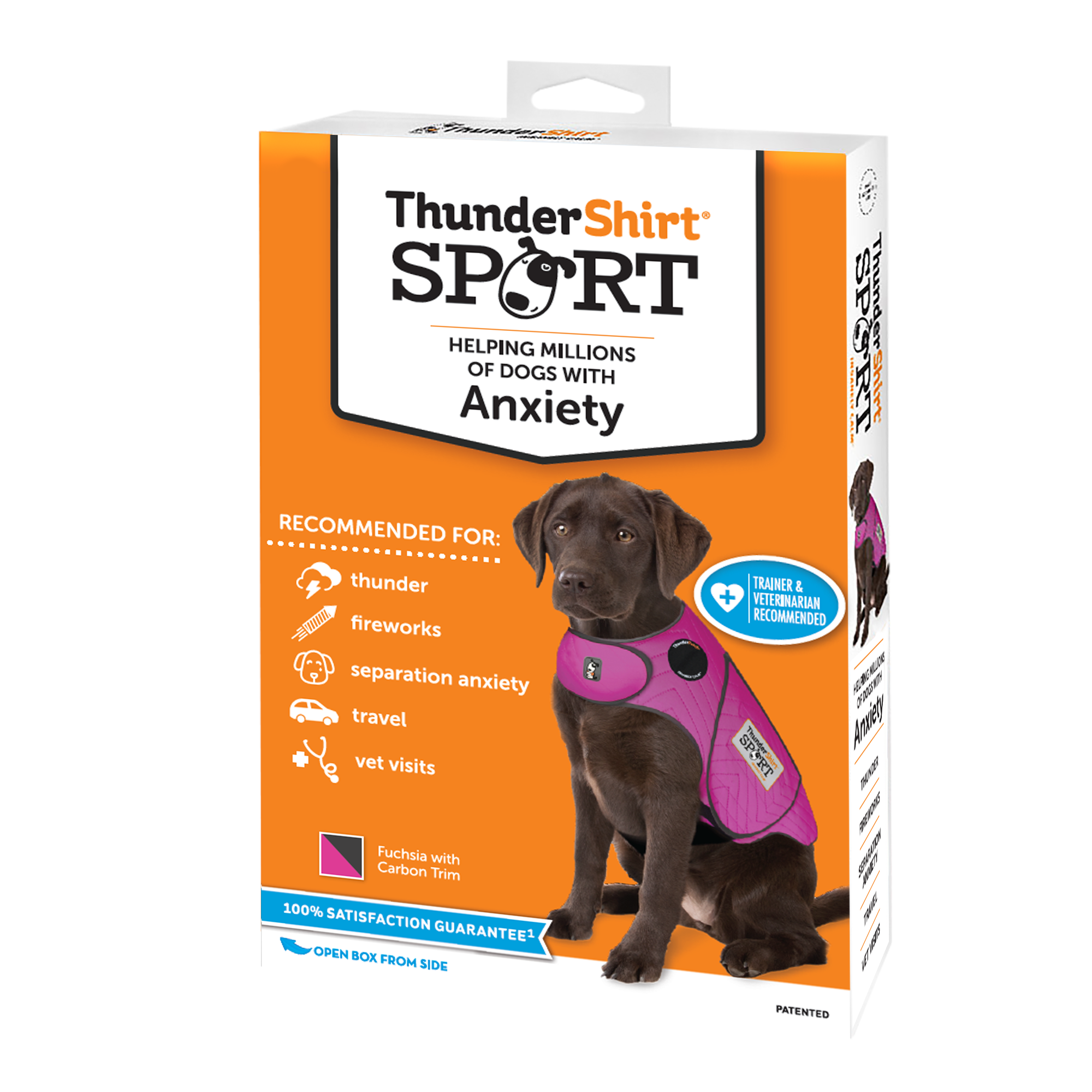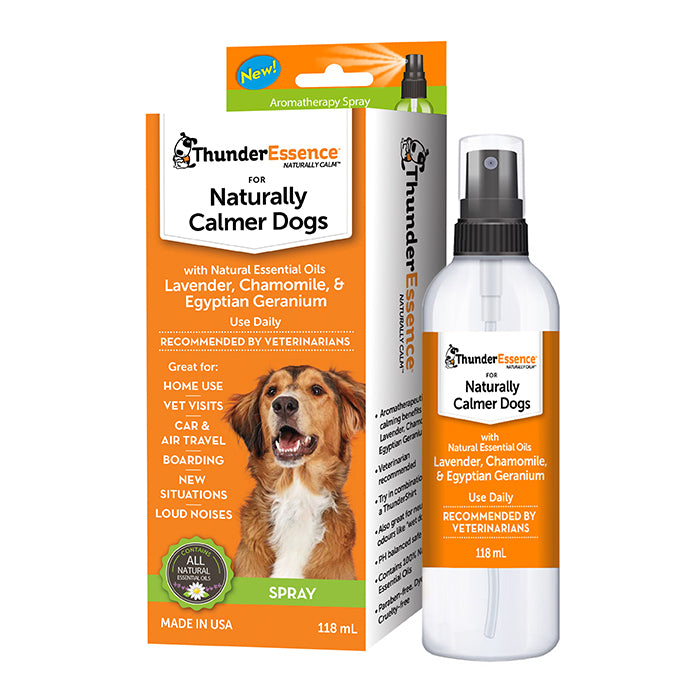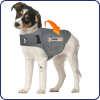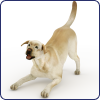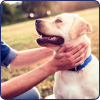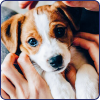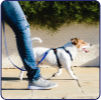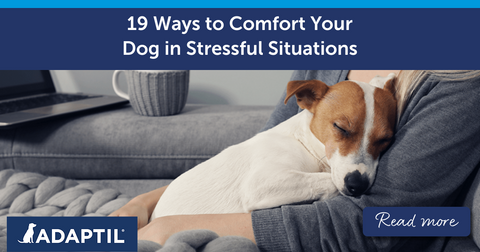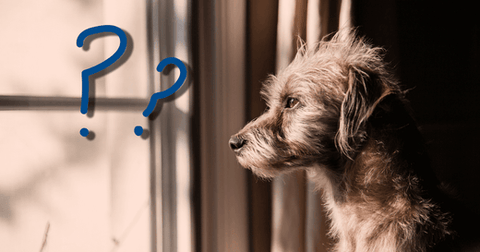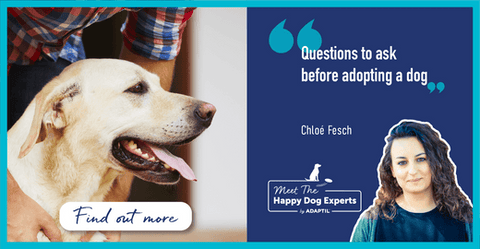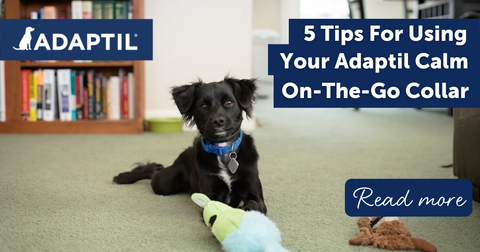Christmas is a wonderful time to share with friends and family, which often means having guests, lots of excitement, food, noise and different smells and probably festive decorations and a Christmas tree! But, is your dog entirely at ease with all of this sudden change?
It is important that your dog is comfortable during the festive season, that their daily routine is not disrupted too much, and that you help your dog with ways that support them and their personality. Keeping a close eye on their body language is important so that you can detect any signs of unease or stress. It's fairly easy to spot the signs of a happy and playful dog, but do you know when your dog is feeling conflicted, or stressed?
Preparing your dog for Christmas changes
With all the preparations that you need to make, it's important that your dog's routine remains the same if possible, e.g. mealtimes, walks and playtimes the predictability will help your dog to feel less overwhelmed.
- Make sure members of the family also understand that your dog may struggle with changes associated with the run up to Christmas, including additional house guests.
- Share the doggie routines between you, so that their days remain the same.
- Hone your doggie recall and cue skills so that your pooch will readily respond to simple instructions like 'sit' and 'settle'. This will help with all the distractions that will be around.
- Get enough doggie supplies in for the period including treats for rewarding their good behaviour, as well as enough of their favourite food for the season. And ensure everyone knows what your dog can and can't eat!
- Prepare a safe place, perhaps in another room to the one where you will be entertaining, so your dog has somewhere comfortable to retreat to, should they feel overwhelmed.
- Make sure your supply of ADAPTIL Calm Diffuser will see you through. This will provide a reassuring environment and help your pooch feel calm in their rest area.
- Invest in new toys/activity feeders/chews to keep them busy whilst your guests are with you.
- If you have a scheduled gathering of guests, take your dog for a good walk before they are due to arrive. This will help them to expend their energy beforehand and they will be more likely to relax as they will be tired.
Help your dog adjust to Christmas guests
- If you are having more than one/two guests arriving at the same time, it may be wise for your dog to be in their safe space and allow them to welcome them when your guests are sitting down and settled.
- Make sure their ADAPTIL Calm Diffuser is running!
- Socialisation classes will help your dog adjust to guests at any time of the year. However, your dog might bark or growl at your Christmas guests for a number of reasons:
- it could be a territorial growl and they are just protecting their home, especially if your guests have not visited before.
- it could be fear of the unknown. If they haven't met before, they will need reassurance that everything will be fine.
- or your guest might try to pick up your dog's favourite toy, which might result in a warning growl.
If you think your dog will react to your guests with a bark or growl, plan ahead and avoid the situation arising. It's important that you do not chastise your dog for growling or barking, but try to understand the cause and try to calm your dog.
- Your dog may want to use their super sensitive nose to sniff your guests; this is their way of gathering information, although you should try and distract them from sniffing too much as your guests might not appreciate it!
- Use those cues you practised and have some treats to hand so that you can reward your dog for good behaviour.
- Allow them to spend time in your guests' company, but also allow them to retire to their safe spot if they show signs of being stressed or are unsettled.
- Be aware of potential hazards from Christmas decorations, party food, packaging and presents (take a look at our top Christmas gifts for your dog!) glasses left lying around by guests etc. A broken glass can do untold damage to a doggie paw.
- Keep them away from open fires, candles, dangling wires and poisonous houseplants. For example, Poinsettia, Holly, Mistletoe, Ivy and even Christmas trees can all make your dog feel poorly if eaten or ingested.
- If your dog is sensitive to loud noises, such as cracker bangs, party poppers, fireworks, or new noisy toys, prepare for this and take them to their safe place.
- Consider masking any noise with calming music or putting a blanket over their bed or crate. A chew or a puzzle feeder with tasty treats inside or a Licki Mat/Snuffle mat will help to distract them.
Help your Christmas guests adjust to your dog
- Your guests may well enjoy a nice walk, especially after a good meal and this would be a good opportunity for them to interact with your dog whilst you are out and about. Playing ball or frisbee, or even hide and seek, would be a good way of building confidence between them.
- Make sure your guests know how to interact with your dog and how to stroke them on the side of the neck rather than top of their head; encourage them to get down to your dog's height, without staring, and give them treats to reward your dog for calm interaction.
- It is also useful for your guests to understand any houserules you have for your dog, for example, are they allowed to be on the sofa or beds? Are there any rooms they are not allowed to go into, like a baby's room?
- Ask your guests not to feed your dog (unless you give them permission) as this can lead to unwanted habits and a persistent dog!
- Most people know that dogs should not eat chocolate and other human foods, like mince pies but it's always good to reiterate this.
- 'Let sleeping dogs lie' is a rule that should always be followed, and it's a good idea to remind your guests, especially if there are little children around.
- Explain to your guests how to reward your dog and what for, so that they can do the same; for example, if your dog gives you a paw when asked, they deserve a treat. If your guests are staying over for a while, it can be helpful to let them know some of the basic cues you use so that they can use the same, and your dog can understand!
- Your guests should understand that if your dog walks away from them after greeting them it is a sign they do not want to engage further, and so the dog should be left, rather than being followed/trying to touch etc. Dogs should never be forced to interact.
General rules to help your dog adjust to Christmas guests
- It is easy to forget that your dog reads your body language very well, so if you are feeling stressed about having guests and the extra Christmas chores it brings, your dog may pick up on this. Try and have some relaxing time together on the build up to Christmas you will both benefit!
- If your dog finds guests difficult, it may be useful to consider limiting the number of guests that visit at one time.
- Your guests may have dogs of their own that they bring with them try and get the dogs to meet before the Christmas stay. If this is not possible, then consider getting them to meet on neutral ground outside before going into the house a quick walk together might be a good way to do this. Make sure each dog has their own space to relax in, away from each other.
- If you are concerned about how your dog will cope with your visitors, speak to your vet beforehand. They can check for any underlying medical issues affecting your dog and plan (with a qualified behaviourist) a management plan for your dog.
Remember that after the Christmas holidays, when guests have gone, the kids are back to school, and you are back at work, your dog might need to be gently reintroduced to spending time home alone, just as we had to do after lockdown.

